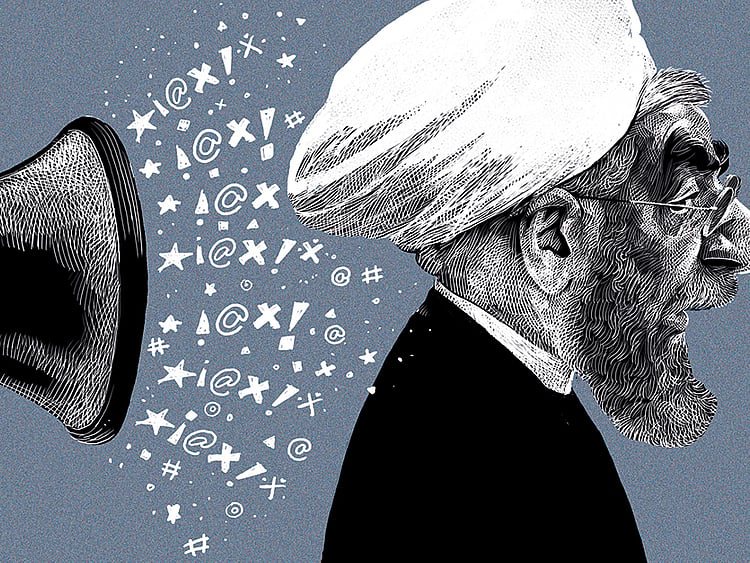Iran’s Rouhani finds himself in the dock
While he served Khamenei’s main purpose, his promised reforms were never fully realised

Pity, if you possibly can, Iran’s President Hassan Rouhani. Today marks the fifth anniversary of his only significant achievement: the nuclear agreement between Iran and the world powers.
But instead of acclaim for that accomplishment, the cleric-politician could face impeachment by a parliament dominated by Iran’s hardliners.
The new parliament, elected in February but only convened late in May, has set itself up as an inquisition into the political and economic failures that have left Iran weaker and more isolated than any time since the end of the 1980-88 war with Iraq.
The hardliners should be Rouhani’s natural constituency: He is, after all, a creature of the hawkish security establishment and, like them, a loyal servant of the Supreme Leader Ali Khamenei.
Instead, hardliners are baying for a political Auto-da-fé, with Rouhani and his foreign minister Mohammad Javad Zarif at the stakes.
The president has been reduced to pleading with the hardliners to show “brotherhood,” but his administration’s poor handling of the coronavirus crisis has fed their vociferous complaints. Too slow to impose a full lockdown, Rouhani was too quick to remove restrictions. As a result, the virus is resurgent.
Short of impeaching Rouhani
Even if parliament stops short of impeaching Rouhani -- for he might yet serve Khamenei as a lightning rod for public anger -- the Iranian president can expect ceaseless cavil and calumny in the year left of his second term.
A foretaste of what is in store came last week, when Zarif was heckled in parliament, called a liar and traitor. The usually equable minister lost his composure, alternating between sarcastic denunciation of his critics and attempts to placate them with the improbable claim that he always acted in concert with their slain hero Qassem Soleimani, commander of the Islamic Revolutionary Guard Corps’ Quds Force.
Rouhani was obliged to defend Zarif, but he knows the hardliners will be saving up their most pungent vitriol for him. Nor can he expect much protection from other powerful figures, like the speaker of parliament and the chief justice: Both are his political rivals, and former aspirants to the presidency.
If one of them had got the job instead of him, Rouhani might now be leading the chorus of condemnation in parliament. That would have been consistent with the role he used to play, as a Khamenei loyalist.
President's chequered record
Iranians of a certain age remember Rouhani’s spittle-flecked attacks against pro-democracy student protesters in 1999. Then, he had threatened they would be “tried and punished for fighting God and sowing corruption on earth,” offences that carry the death penalty in Iran.
He might now be hurling those threats at Zarif, but for Khamenei’s decision to make him president in 2013, when the Supreme Leader needed a less tendentious replacement for Mahmoud Ahmadinejad to negotiate a peace with the Western powers and loosen the straitjacket of economic sanctions on Iran.
Rouhani was presented as a moderate; anybody who might actually match that description was disqualified from running. In the absence of a real reform candidate, Iranians voted for the simulacrum, enabling Rouhani to easily defeat his far-right opponent. The play was staged again in 2017, when Rouhani was matched against another token right-winger.
Rouhani’s promised social and political reforms were never fully realised, but he served his main purpose for Khamenei by delivering the nuclear agreement.
That deal is now effectively dead, and it is too late for Rouhani to throw off his moderate’s garb and revert to his hard-line self.
Bobby Ghosh is a political columnist. He writes on foreign affairs, with a special focus on the Middle East
Bloomberg
Sign up for the Daily Briefing
Get the latest news and updates straight to your inbox
Network Links
GN StoreDownload our app
© Al Nisr Publishing LLC 2026. All rights reserved.